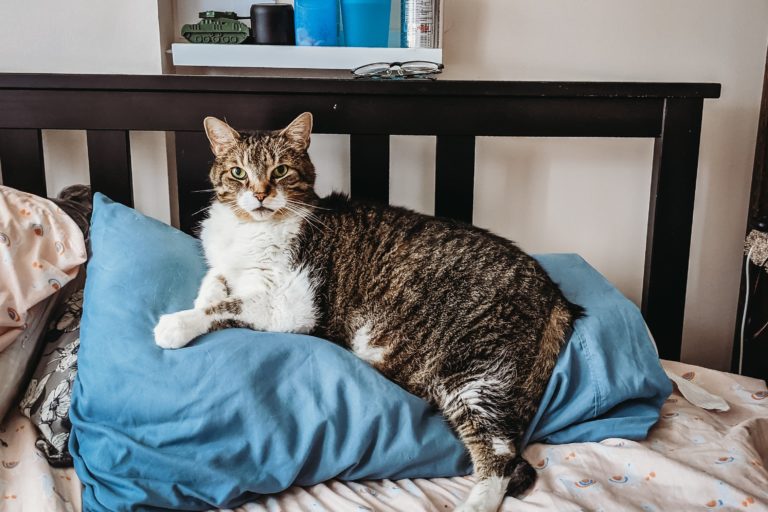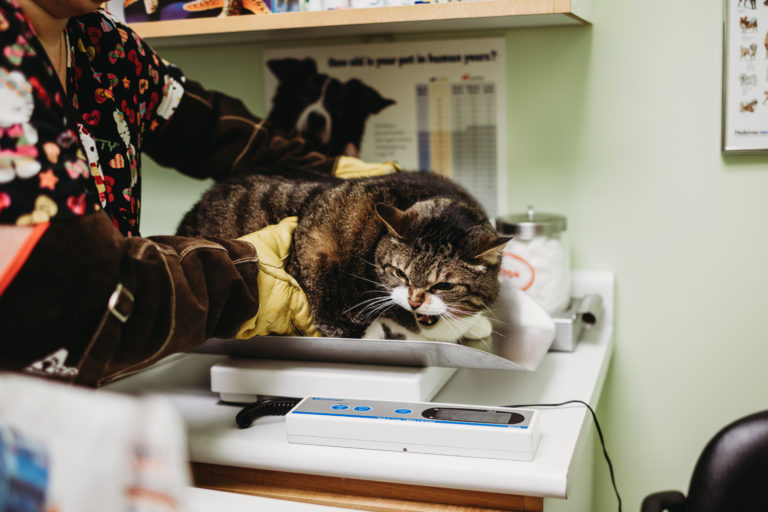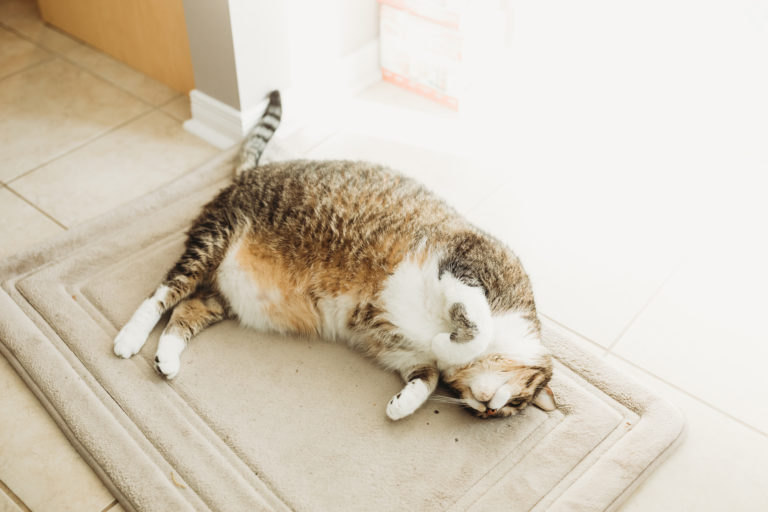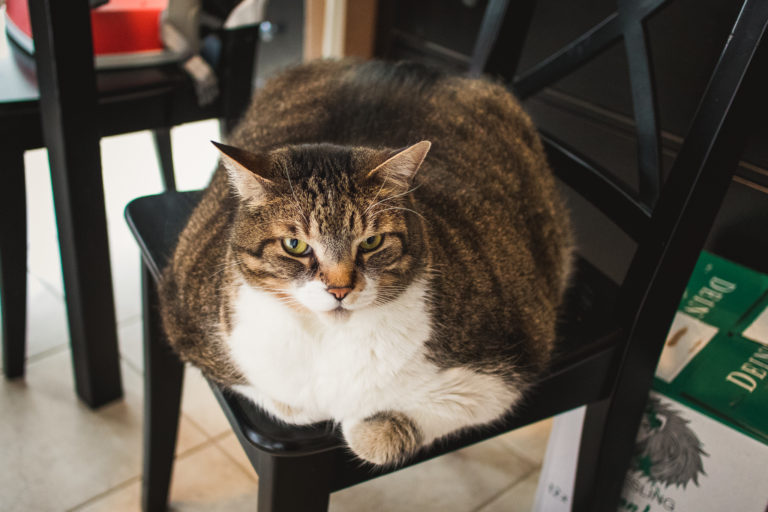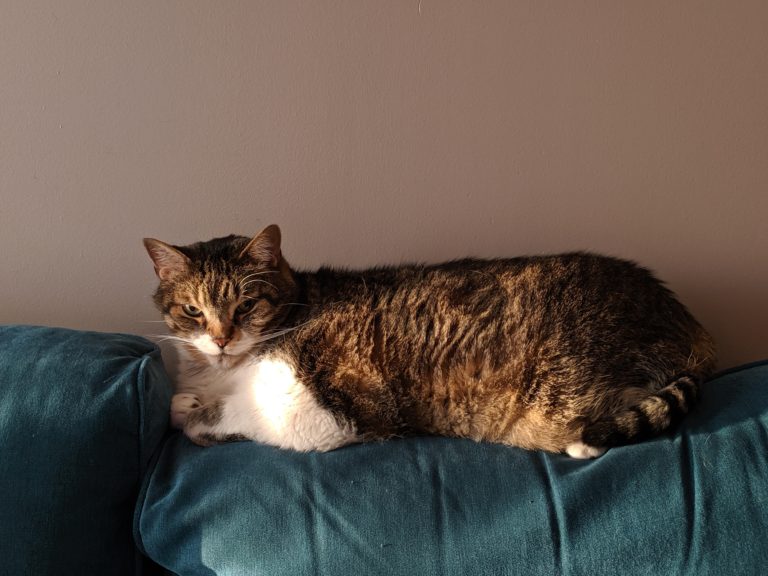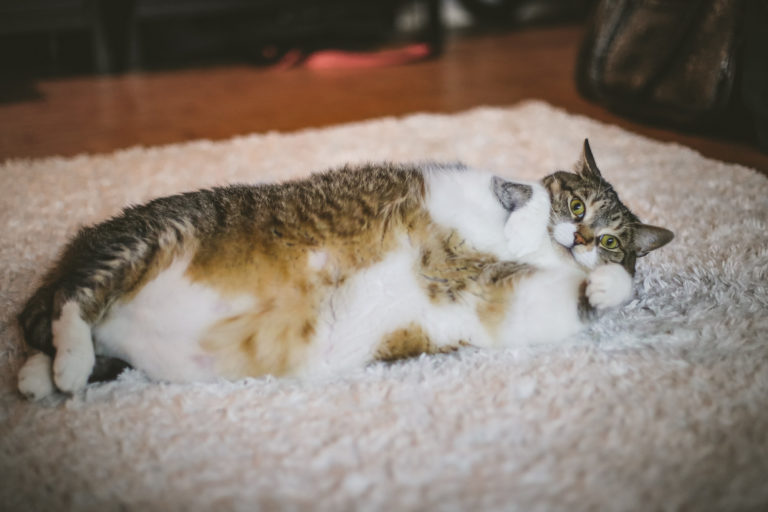Feline Pancreatitis
Everything you want to know about feline pancreatitis
Why do cats get pancreatitis and how serious is it?
While your vet should always be notified immediately if you suspect pancreatitis, we’re here to share our stories about Hercules’s feline pancreatitis journey, what we learned, and what questions still remain unanswered.
Advocating for research on the cause of feline pancreatitis
Sharing personal stories + educational resources
Supporting advancements in prevention of acute pancreatitis
Feline Pancreatitis:
Hercule’s Story
Hercules was always a big boy and packed on the pounds immediately after he was neutered. He spent the majority of his life on a diet although this was made more complicated by having to manage several bouts of acute pancreatitis. Hercules crossed the rainbow bridge in late 2021 due to a significant case of necrotizing pancreatitis.
I’m in healthcare; albeit human healthcare. I make decisions best when solid evidence is present to me. Unfortunately, even Herc’s vets couldn’t fully explain why Herc’s organs were failing that day. It made the decision to let him go that much more gut-wrenching.
While I learned a lot about mild acute pancreatitis while Herc was alive, I didn’t learn about what end-stage pancreatitis could affect the body. I spent weeks after Hercules’s passing trying to understand what was happening in his body before he passed and whether there was anything we could have done to prevent it. Did we make the right decision?
In Herc’s memory, I’m dedicating this portion of his website to share information about feline pancreatitis with you. My goal is to create understandable and clear sources of information, free of medical jargon, to help empower owners who find themselves in a similar situation with links to the original articles so you can discuss more with your vet.
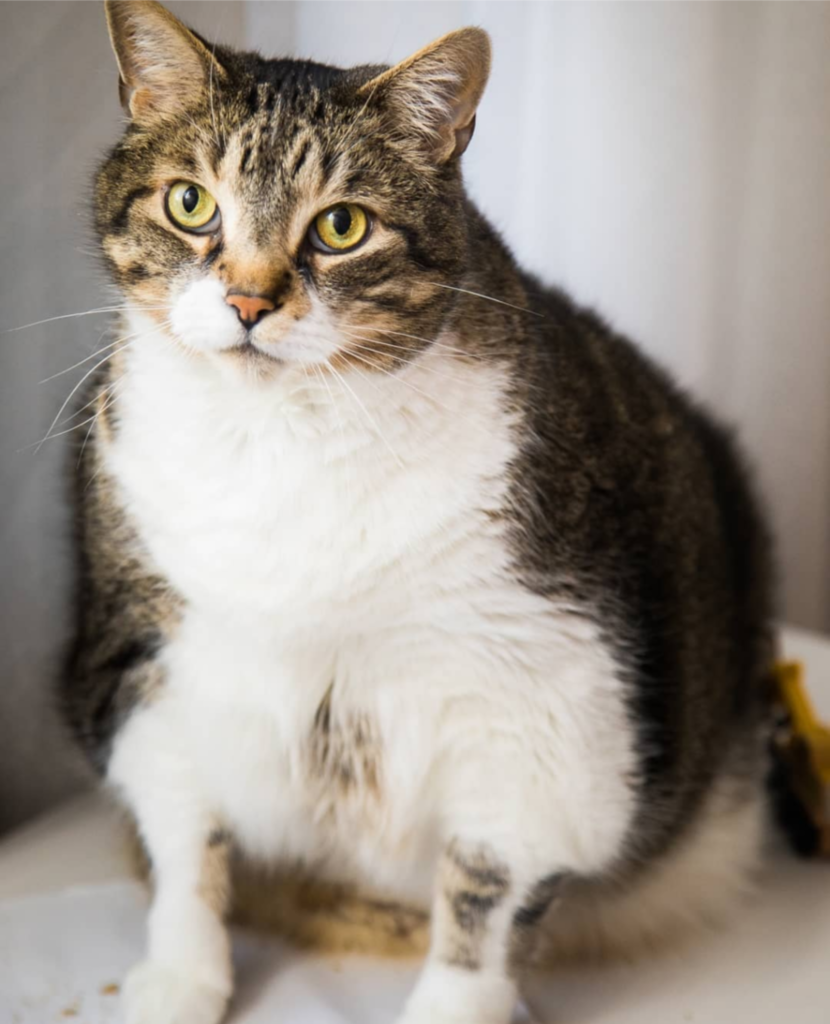
Feline Pancreatitis 101: Quick Facts
Pancreatitis requires veterinary intervention
Pancreatitis, when mild, can be successfully managed with supportive care through your veterinarian. Pancreatitis cannot be managed at home and you cannot just “wait it out for a few days” without supportive care. Always take your cat to the nearest vet if they are having any symptoms of illness.
Pancreatitis requires quick intervention
Pancreatitis can sometimes progress very quickly; the further it progresses the harder it can be to control and the longer it can take to recover. In some instances, left without intervention, pancreatitis can be life-threatening. If you think your cat might have pancreatitis, bring them to the vet immediately. A simple blood test can determine the likelihood of pancreatitis and a care plan can be put in place after an official diagnosis.
There’s a lot of ‘unknown’ with feline pancreatitis
The cause of feline pancreatitis is unknown. At best, there are some guesses as to what the causes may be or what risk factors may be, but that’s about it. This makes it challenging to prevent future attacks as the underlying trigger is often unknown.
Start tracking your cat’s symptoms now
Get Instant Access to our
Feline Pancreatitis
Symptom Tracker
Grab our exclusive feline pancreatitis symptom tracker printable. A must-have tool to monitor symptoms, share with your vet, and to help you and your vet team see trends with the hope to catch and manage flare-ups faster.
Send it to me
right meow!
You’re also subscribing to our mailing list. You can unsubscribe at any time.
Feline Pancreatitis 101:
What you need to know about feline pancreatitis
What is feline pancreatitis?
Feline pancreatitis is inflammation of the pancreas. The pancreas is an organ that is responsible for ______ and when it gets inflamed, it no longer functions properly and can cause varying levels of problems in your cat. Currently the cause of pancreatitis in cats is unknown, however we do know that is it not related to fatty diets (this is true, however, for dogs and humans).
There are 3 types of pancreatitis in cats, acute, chronic and ____
There are a number of management options for pancreatitis, although some are newer and some are “tried and true”. According to Idexx, the options for management of feline pancreatitis include:
Living with Acute Chronic Pancreatitis
Hercules’ 5+ year battle
While it doesn’t have a
Hercule’s 6 year battle with pancreatitis
This is the story of how pancreatitis affected Herc
Cats are experts at hiding pain; signs of pancreatitis can be very subtle
Cats are exceptionally good at hiding any pain they may be experiencing. Usually by the time an owner sees other signs of pancreatitis, the cat may have been experiencing discomfort for a while.
The two most common signs are lethargy and lack of appetite. These are very vague symptoms and can be present in a number of conditions. Just because your cat may be displaying these symptoms does not mean they have pancreatitis – it may be a number of other conditions. However, any time you notice lethargy or change in appetite in your cat, please consult your veterinarian.
Some cats experience nausea and vomiting while others experience diarrhea. In some cases, often those that are more severe, you may notice fever, weakness or changes in their breathing (like open mouth breathing). Any time you notice open mouth breathing, immediately bring your cat to the nearest emergency vet.
What are the signs of feline pancreatitis?
Prognosis is generally good when caught early.
While Hercule’s story does not have a storybook ‘happy ending’, he survived several acute attacks of pancreatitis and this is what we celebrate. He is a fighter!
For cats with acute pancreatitis, if they are assessed by a vet quickly and have opportunities to benefit from medical inventions, survival is quite good. After the initial attack, it’s not common for acute pancreatitis to return.
If pancreatitis returns or waxes and wanes for years, as it did with Hercules, this may be indicative that your cat has chronic pancreatitis. While chronic pancreatitis is not immediately life-threatening, it can set the stage for pancreas damage down the road which can lead to additional complications and an increased risk of successful management.

Featured Post
Does obesity cause feline pancreatitis?
Pancreatitis can affect many species and in humans as well as dogs, there’s a link between high fat diets and pancreatitis.
…but is this true for cats?
Feline Pancreatitis Information
A collection of stories and educational pieces about feline obesity. For those articles that are not based on our lived experience, we will always include links to sources that we are referring to so that you can continue your education and equip yourself with the right knowledge to discuss things further with your veterinary team.
I know cats don’t like to listen,
but we need to make sure you know this…
We are not veterinarians and the information on this site is not medical advice.
We are sharing Hercules’s battle with feline obesity and feline pancreatitis. A lot of what we’re sharing is personal experiences and if not, contains links to where we’re referring information from.
Our goal is to use our background in human healthcare and knack for writing to help make medical-jargon-filled information more digestible and accessible to the average cat owner.
Educating yourself is essential and I’m glad you’re here for that, but the next step is crucial: Always discuss any concerns you have or any interventions you want to try out with your veterinarian.
Never rely exclusively on the internet no matter how reliable the website sounds!
Frequently
Asked
Questions
Want to know what we would do if we were in your situation? Drop us an email and we can share our perspective in our next WWHD (What Would Herc Do) blog post.
Remember that disclaimer above? We’re not veterinarians. We will not be providing you medical advice but we will happily share our opinion on your situation (which often is going to include us telling you to include your vet in the conversation!)
Get the look
Celebrate FatCatHercules
Hercules has had ‘merch’ for many years; we’ve unarchived some of his classic designs for our new shop.
All merch sales go directly to compensation for the maintenance of this website.
-

 Eat the Haters 🌈 Rainbow$23.75 – $28.74
Eat the Haters 🌈 Rainbow$23.75 – $28.74 -
 Galaxy Pizza Fat Cat Throw$54.99
Galaxy Pizza Fat Cat Throw$54.99
